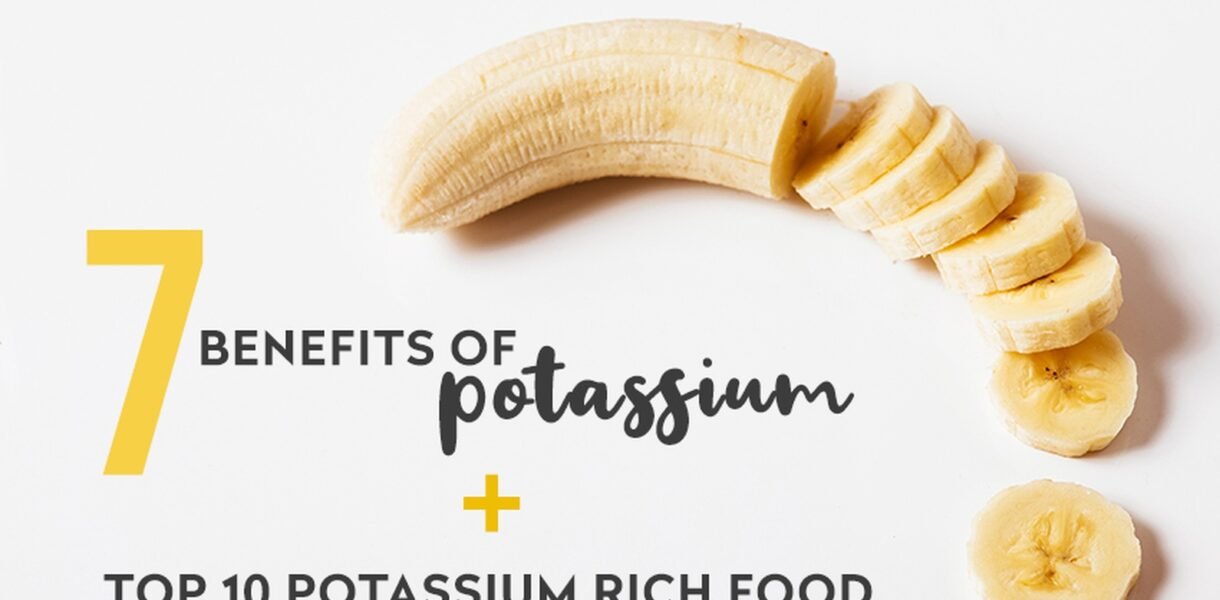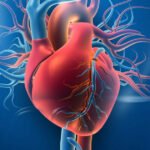Table of Contents
Discover the 7 unexpected benefits of potassium for your health. Learn how this essential mineral supports brain function, muscle strength, mood regulation, and more.
The main benefits of potassium
I think most people know of the main benefits of potassium supporting a healthy heart , supporting healthy blood sugars , help balancing out your fluids , things like that .
But there’s some unexpected , very interesting benefits of potassium I think you should know about .
What is potassium?
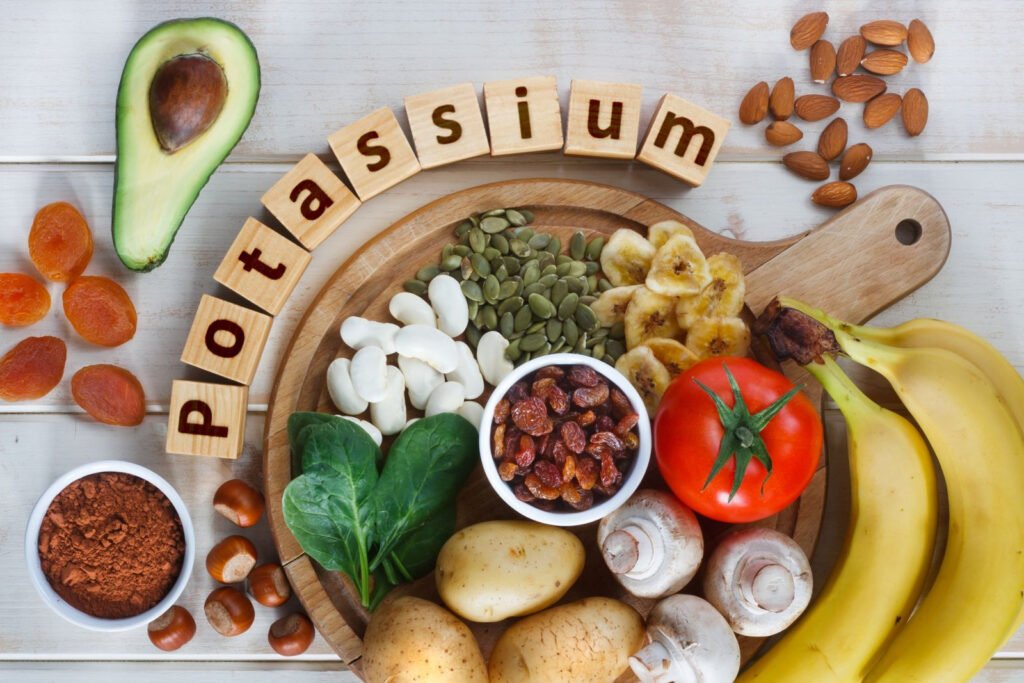
Well , out of all the minerals , potassium is needed in the largest quantity , you need 4 , 700 milligrams of potassium every single day , you don’t even require a fraction of that quantity for other nutrients .
So with potassium , it’s unique in that you need a lot of it , primarily because it supports 2 major areas , the muscles and the nerves .
You have these little tiny pumps , they’re called sodium potassium pumps .
You have billions of them in the muscles and the nervous system and allows the muscles and nerves to work .
It also is necessary in producing energy .
So let me go through a couple really important points about potassium .
Potassium deficiency causes

The first being why are we deficient , because an average person , especially in the US only consumes about a cup and a half of vegetables per day .
And vegetables are probably 1 of the better sources of potassium .
And so a cup and a half of vegetables is just not gonna be even close to what you need .
You’re gonna need between 7 to 10 cups to get closer to that 47 100 milligrams and include other foods that have potassium as well .
Now , if you look up what foods are high in potassium , they will tell you it’s fruits , vegetables , whole grains , beans , things like that .
Now , if you look at half of a cup of whole grains , okay , you’re gonna get less than about 200 milligrams of potassium .
And on top of that , whole grains has phytic acid , which blocks minerals , especially potassium , especially phosphorus , zinc , copper , magnesium , manganese .
So whole grains are not a good source of potassium or minerals .
Now you say , what about refined grains ?

Well , when you’re fine grains , you leach out and lose minerals , not to mention all that refined flour that turns into glucose , which then requires potassium to help in its storage of glucose .
In other words , the more refined grains or sugar that you consume , the less potassium you’re gonna have , that’s gonna be available because it’s gonna be locked up in the storage of that stored sugar as glycogen , leaving you with the potassium deficiency .
Now , just as a side note , for those of you that are on the ketogenic diet , when you do keto , and you switch your fuel from burning sugar , okay , to burning fat , you’re going to be using up this stored sugar , this stork glycogen , and that is going to release a lot of , fluid in your tissues .
And with that loss of fluid comes a loss of electrolytes , including potassium .
So when you start in the ketogenic diet , and you don’t substitute that potassium , you may end up with keto fatigue .
Now what about getting your potassium from fruit ?
Well , fruit does have some potassium , like 1 apple would give you about just under 200 milligrams of potassium .
But again , we need 47100 .
So how many apples would you have to consume ?
And then also , what about all that sugar that comes with fruit ?
So fruit also is not the best source of potassium because it comes with a lot of sugar .
Now , what about fish or , or beef ?

Well , fish will actually give you potassium .
Like a half a filet will give you , up to 600 milligrams of potassium , 3 ounces of beef will give you 270 milligrams of potassium .
So all these other foods will contribute to adding up to the requirements you need for potassium .
Now a potato , okay , 1 medium sized potato will give you 800 milligrams of potassium , but it’ll also give you a lot of starch .
And so we don’t wanna consume potatoes .
The best source of potassium is leafy greens , avocados , and certain greens will give you more potassium than others like Swiss chard , beet tops .
And the other cool thing about eating enough greens is that it will also give you magnesium .
And 1 interesting thing about potassium is you can be deficient in potassium if you’re low in magnesium .
So both of those minerals are needed Together , we can become deficient with potassium through diet , which is a very common reason .

But also , the more stress you have , the more potassium you will lose , the more sugar you eat , the more caffeine you consume , the more alcohol , the less potassium you’re going to have in your body .
Diuretics , for example , are a common reason why people are deficient in potassium .
If you consume too much salt , you can become deficient in potassium because sodium potassium work together .
So the more salt you consume , the more potassium you need .
And that also goes with more potassium you consume , the more salt you need , because they both function in their normal ratios .
But typically we need at least twice as much potassium as we do sodium and salt that when you injure yourself or you go through a surgery , your body dumps potassium .
Unexpected potassium benefits
| Benefit | Details |
|---|---|
| 1. Supports Heart Health | Potassium helps regulate blood pressure and reduces the risk of heart disease by balancing sodium levels. |
| 2. Prevents Muscle Cramps | Adequate potassium levels prevent muscle cramps and spasms by supporting proper muscle contractions. |
| 3. Reduces Risk of Stroke | High potassium intake is linked to a lower risk of stroke by maintaining healthy blood pressure levels. |
| 4. Maintains Bone Health | Potassium reduces calcium loss in urine, promoting stronger bones and reducing the risk of osteoporosis. |
| 5. Supports Nerve Function | Potassium is essential for proper nerve signal transmission and overall nervous system function. |
| 6. Enhances Muscle Function | Potassium supports muscle strength and function by maintaining electrolyte balance and preventing muscle fatigue. |
| 7. Aids in Metabolism | Potassium plays a role in carbohydrate metabolism, helping convert glucose into energy efficiently. |
| Sources of Potassium | – Bananas – Avocados – Leafy greens – Beans – Nuts – Seeds – Potatoes – Fish |
| Recommended Daily Intake | The recommended daily intake of potassium for adults is about 4,700 milligrams. |
| Symptoms of Potassium Deficiency | Muscle cramps, weakness, fatigue, constipation, irregular heartbeats, tingling or numbness, nausea, vomiting, bloating, abdominal pain |
| Dr. Berg’s Recommendations | Ensure adequate potassium intake through diet, consider supplements if necessary, monitor potassium levels, and consult with a healthcare provider for personalized advice. |
| Importance of Monitoring Levels | Regular check-ups with healthcare providers, monitoring for signs of deficiency or excess, maintaining a balanced diet for overall health. |
Alright , so now let’s dive into some of the benefits that are unexpected from potassium .
Number 1 , cognitive benefits .
Remember I talked about the nerves and the muscles needing potassium .
Well , guess what ?

You have nerves in your brain , so your brain needs potassium .
And when you have sufficient potassium , you support cognitive function , memory , focus , concentration
And when you’re deficient in potassium , you become a bit disoriented .
Number 2 , cerebellum support , what is the cerebellum , it’s the back part of your brain that’s involved with coordinated and controlled movements .
And so if you’re deficient in potassium , you could be a little uncoordinated .
I wonder how many , children that are not coordinated are just deficient in potassium , since an average child’s diet probably doesn’t get any potassium at all .
They consume a lot of ultra processed junk food .
Number 3 , mood support .
Potassium supports your mood .
Potassium can help take you out of a flight or fight mode , like a sympathetic , nervous system dominant situation .
So potassium is really good for people that are in stress .
Potassium is very important in calming a person down .
Potassium will help uplift someone and bring them up .
Potassium will help make a person less irritable , less worried , less fearful .
So potassium is really , really important in stress and also stress depletes potassium .
number 4 potassium will make your muscles stronger .
This means when you exercise , you’ll be less fatigue .
Now to be totally transparent , I do sell a high potassium electrolyte powder , which I challenge you to do an experiment on yourself with exercise , because you may notice an improvement in endurance .
The times you take that electrolyte powder versus the times that you don’t .
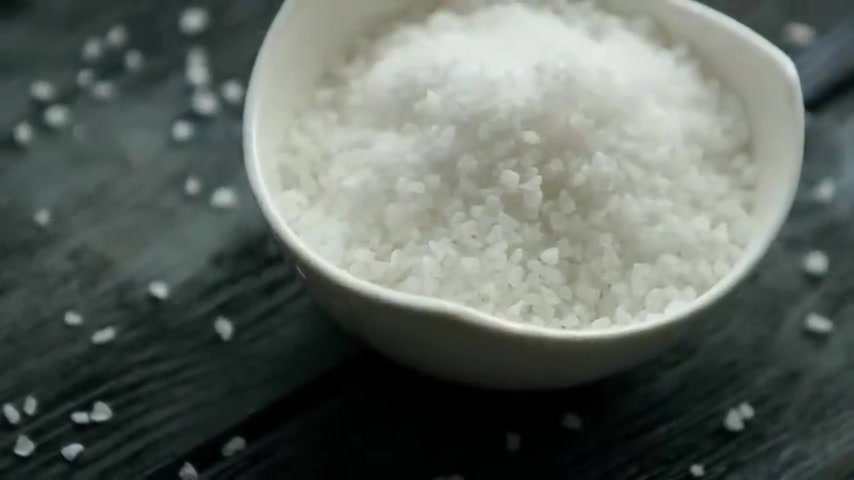
But as a side note , anytime you take a high potassium electrolyte powder , and you’re exercising , also make sure that you’re adding more sea salt with that , because as you sweat , you’re gonna lose potassium as well as sodium .
And you can also experience fatigue from a loss of sodium , just as you could from a loss of potassium .
number 5 , potassium can protect you against leg cramps .
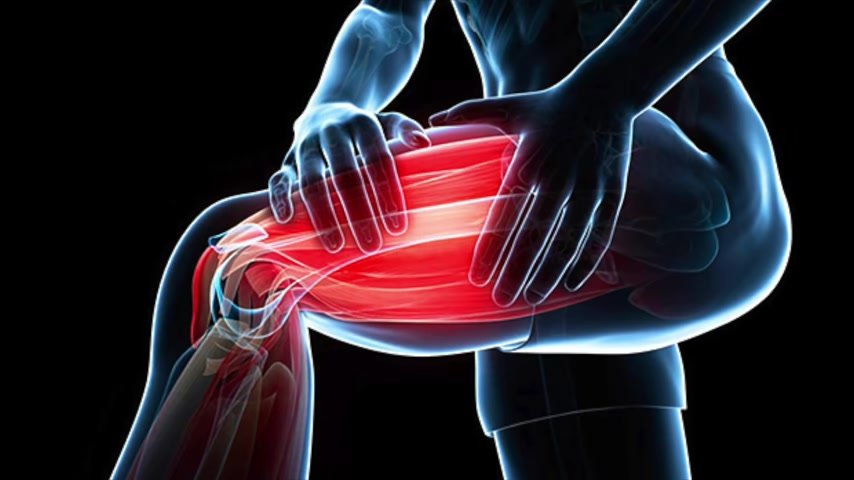
A lot of people think that leg cramps are always a magnesium deficiency , but you can also experience leg cramps from a potassium deficiency too .
Number 6 , potassium counters the effgoing to be much heavier on the sodium balance than the potassium .
And so all these things you hear about the negative aspects of too much salt in reality is just in a deficiency of potassium because potassium protects you against the side effects of too much salt and excessive salt is 1 of the causes of low potassium .
And number 7 potassium can help you have regular bowel movements .
So it helps to protect you against constipation .
Why ?
Because like I said before , potassium is involved with muscle and nerve , and your colon is smooth muscle .
And so if you’re deficient in potassium , that smooth muscle is not going to work as well as it should
key Points:
- Many people already know that potassium supports a healthy heart and healthy blood sugar levels and helps balance bodily fluids. But, there is so much more to potassium.
- You need a lot of potassium. The body requires 4700 mg of potassium every day. You don’t require even a fraction of that for other nutrients.
- Potassium supports two major areas: the muscles and the nerves—and it’s essential for energy production.
- Many foods people say are high in potassium, like fruit, whole grains, beans, and potatoes, are not actually good sources of potassium. The phytic acid in whole grains can even block potassium.
- The best sources of potassium are leafy greens—especially Swiss chard and beet tops. Avocados are also an excellent source of potassium. Adding fish and beef to your diet with vegetables is another great way to get the potassium you need.
Causes of a potassium deficiency:
• A lack of vegetables in the diet
• Experiencing stress
• Consuming too much sugar
• Consuming too much caffeine
• Consuming too much alcohol
• Taking diuretics
• Consuming too much salt
• Experiencing an injury
• Going through a surgery
Unexpected benefits of potassium:
- Cognitive benefits
- Cerebellum support
- Mood support
- Stronger muscles
- Protection against leg cramps
- Countering the effects of high sodium (salt)
- Supporting regular bowel movements
You can also try my high-potassium Electrolyte Powder to help achieve your potassium requirements, improve your endurance, and support your health. Just remember to take more sea salt if you’re exercising while taking a high-potassium electrolyte powder
DATA:
https://onlinelibrary.wiley.com/doi/10.1111/j.1742-1241.2009.02051.x
https://karger.com/dee/article/8/1/151/102905/The-Link-between-Potassium-and-Mild-Cognitive
FAQ:
What is the main benefit of potassium?
The main benefit of potassium is its role in maintaining proper fluid and electrolyte balance in the body. It supports muscle function, nerve transmission, and helps regulate blood pressure, thereby contributing to overall cardiovascular health.
Why does potassium make you happy?
Potassium can contribute to overall well-being and happiness by supporting the proper function of neurotransmitters and promoting healthy nerve function. It helps regulate the balance of fluids in the brain, which can influence mood and mental clarity.
How do you get 4700 mg of potassium a day?
To get 4,700 mg of potassium a day, include potassium-rich foods in your diet such as:
- Bananas (400-450 mg per banana)
- Avocados (700-900 mg per avocado)
- Spinach (800-850 mg per cup, cooked)
- Sweet potatoes (500-700 mg per medium potato)
- Beans (600-800 mg per cup, cooked)
- Salmon (400-600 mg per fillet)
- Yogurt (350-450 mg per cup)
- Oranges or orange juice (250-300 mg per orange or cup of juice)
What are the benefits of potassium for the brain?
Potassium benefits the brain by supporting proper nerve function and neurotransmitter activity. It helps maintain fluid balance in brain cells, which is essential for cognitive function, mental clarity, and overall brain health. Adequate potassium levels can also help reduce the risk of stroke.
What happens if you take potassium every day?
Taking potassium every day helps maintain proper electrolyte balance, supports muscle and nerve function, regulates blood pressure, and promotes overall cardiovascular health. However, it is important to stay within recommended daily intake levels to avoid hyperkalemia, especially if you have kidney problems or are taking certain medications.
What is potassium best used for?
Potassium is best used for maintaining fluid and electrolyte balance, supporting muscle contractions, nerve transmission, and regulating blood pressure. It also plays a crucial role in overall cardiovascular health and preventing conditions such as hypertension and stroke.
Does potassium give you energy?
Potassium itself does not directly provide energy, but it plays a crucial role in energy metabolism by supporting proper cell function, muscle contractions, and nerve transmission. Adequate potassium levels help maintain overall energy levels and prevent fatigue.
What are 5 benefits of potassium?
- Supports Muscle Function: Prevents cramps and supports proper muscle contractions.
- Regulates Blood Pressure: Helps balance sodium levels, reducing hypertension risk.
- Maintains Fluid Balance: Ensures proper hydration and electrolyte balance.
- Supports Nerve Function: Aids in neurotransmitter activity and nerve signal transmission.
- Promotes Heart Health: Reduces the risk of arrhythmias and supports overall cardiovascular health.
Potassium benefits for skin
Potassium benefits the skin by maintaining proper hydration and electrolyte balance, which helps keep the skin moisturized and healthy. Adequate potassium levels can also support wound healing and reduce the appearance of dry or flaky skin.
Potassium benefits for males
Potassium benefits males by supporting muscle function and reducing the risk of muscle cramps, maintaining proper electrolyte balance, regulating blood pressure, and promoting overall cardiovascular health. It also aids in proper nerve function and energy metabolism.
What does potassium do for the heart?
Potassium regulates blood pressure, supports proper heart muscle contractions, and reduces the risk of arrhythmias. It helps balance sodium levels in the body, which is crucial for maintaining overall cardiovascular health and preventing hypertension.
How much potassium in a banana?
A medium-sized banana contains approximately 400-450 milligrams of potassium.
Benefits of potassium supplements
Potassium supplements can help individuals meet their daily potassium needs, especially if they have dietary restrictions or medical conditions that affect potassium levels. Benefits include supporting muscle and nerve function, regulating blood pressure, and preventing conditions such as hypertension and stroke.
How much potassium does a woman need daily?
The recommended daily intake of potassium for adult women is about 2,500 to 3,000 milligrams. Pregnant and breastfeeding women may require higher amounts, and it is best to consult with a healthcare provider for personalized recommendations.
Potassium benefits for muscles
Potassium benefits muscles by supporting proper muscle contractions, preventing cramps, and reducing the risk of muscle weakness. It maintains electrolyte balance and helps in the recovery and repair of muscle tissues after exercise, promoting overall muscle health.

